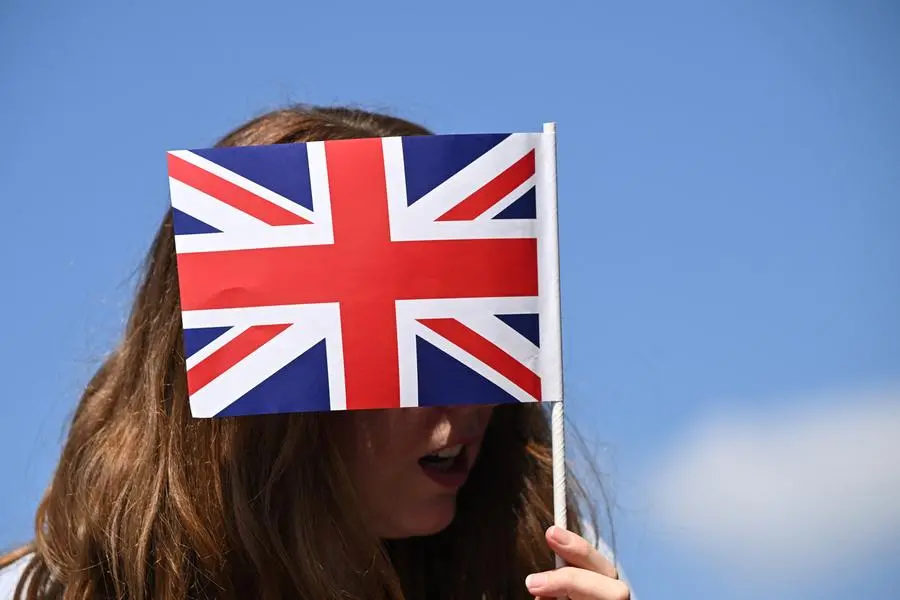PHOTO
Britain's political leaders made a final push for votes Wednesday on the last day of an election campaign expected to return a Labour government after 14 years of Conservative rule.
Ex-premier Boris Johnson staged an 11th-hour rallying call for the flagging Tories but an ally of Prime Minister Rishi Sunak conceded their party was staring at an "extraordinary landslide" defeat.
Voters will cast ballots from 7:00 am (0600 GMT) on Thursday, with polls predicting that Labour will win its first general election since 2005 -- making its leader Keir Starmer prime minister.
That outcome would see Britain swing leftwards back to the centre ground after almost a decade and a half of right-wing Conservative governments.
Starmer was criss-crossing the UK on Wednesday with visits in England, Scotland and Wales in a bid to shore up Labour support and warn against complacency in the campaign's final hours.
"If you want change, you have to vote for it," the 61-year-old told reporters, adding that he was "not taking anything for granted".
The Tories have been going all out to play upon people's fears, warning of tax rises and weaker national security if they are voted out, in what Labour sees as a desperate last stand to cling on to power.
They have also increasingly urged voters in recent weeks to stop the prospect of Labour winning a "supermajority" -- a claim Labour fears is intended to hit turnout.
Work and Pensions Secretary Mel Stride, one of Sunak's closest allies, said Wednesday the electorate would "regret" handing Labour "untrammelled" power without an effective Tory opposition.
- Bigger than Blair? -
"If you look at the polls, it is pretty clear that Labour at this stage are heading for an extraordinary landslide on a scale that has probably never, ever been seen in this country before," he told right-wing broadcaster GB News.
Labour has enjoyed a consistent 20-point lead in the polls over the past two years with many voters dissatisfied at the Conservatives' handling of a range of issues including the cost of living, public services, immigration and the economy.
But Johnson -- ousted by his own colleagues, including Sunak, in 2022 after a string of scandals, and who has been notably absent from the campaign -- urged supporters not to see the result as a "foregone conclusion".
The Brexit stalwart told a rally late Tuesday that Starmer would try to "usher in the most left-wing Labour government" since World War II.
Earlier, Survation pollsters predicted Labour was on track to win more than the 418 seats it won when Tony Blair ended 18 years of Conservative rule in 1997.
Labour requires at least 326 seats to secure a majority.
"There is more chance of lightning striking twice in the same place... than Rishi Sunak remaining as prime minister," Britain's pre-eminent political polling expert John Curtice said this week.
Attention in the British media is turning to what a Starmer government would look like when the results for the 650-seat parliament start dropping from about 2230 GMT on Thursday into Friday morning.
Thursday's vote is Britain's first July election since 1945, when Labour under Clement Attlee defeated the Conservatives of World War II leader Winston Churchill, ushering in a period of transformational social change.
Attlee's government created the modern welfare state, including the National Health Service, Britain's most cherished institution after the royal family.
- In-tray -
Starmer's "change" agenda is not so radical this time around and promises cautious management of the country's economy, as part of a long-term growth plan that includes nursing battered public services back to health.
With an air of inevitability about a Labour win, Starmer and his colleagues are raising expectations of a turnaround in Britain's flagging fortunes.
Economists say anaemic growth should be addressed. Pro-Europeans want Brexit reversed. Everyone wants an end to the sustained squeeze on their finances over the last decade and a half that has tipped more people into poverty.
Others want a return of political integrity and stability after a chaotic period of five prime ministers, a succession of scandals and Tory infighting between centrists and right-wingers that shows no sign of abating.
Starmer -- the working-class son of a tool maker and a nurse -- has none of the political charisma or popularity of former leader Blair, who presided over that last Labour victory in 2005.
But the former human rights lawyer and chief public prosecutor stands to gain from a country fed up with the Tories, and a feeling of national decline.





















